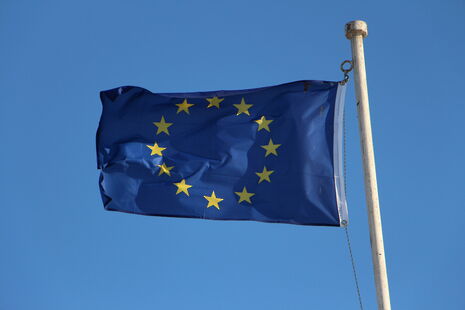EU applications to Oxbridge rebound
Early applications from non-UK EU citizens increase by 7% after universities and government clarify fee and residency issues

The number of non-UK EU citizens applying for places at Oxford and Cambridge has rebounded, according to statistics released today by UCAS.
The figures, which also include applications to study medicine, veterinary medicine, and dentistry, show an increase of 7% on last year for non-UK EU applicants, reversing a 9% fall in last year’s statistics.
The 2016 cycle showed a particularly harsh decline for Cambridge, which saw a 14% fall in non-UK EU applications. Nicola Dandridge, chief executive of Universities UK, suggested at the time that “uncertainty” over fees and financial support may have contributed to the decline.
Since then, the University has clarified that EU students applying in 2017 would not be subject to the overseas fee at any point during the course of their study. The government has also issued more detailed information on the residency rights of non-UK EU citizens living in the EU after Brexit.
Robert Halfon, chair of the Commons education committee, said that the rise in application demonstrated that universities’ “gloomy” predictions did not reflect the reality.
Last year, Cambridge made a submission to the committee, drawn up by pro-vice-chancellors Chris Abell, Eilís Ferran and Graham Virgo, which said that the University was “currently modelling a two-third reduction in admissions from the non-UK EU”.
Dr Christopher Bickerton, fellow of Queens’ College and POLIS lecturer, said that “it was always absurd to predict some sort of post-EU referendum armageddon were the No vote to win.
“the demand for places at Oxbridge is always so high. Combined with a weak pound and perhaps a desire to get in before fees for EU nationals go up post-Brexit (if indeed they do) then the jump isn’t surprising.”
However, Bickerton, who was a strong advocate of the No vote, also noted that “we need to be very wary of jumping to any conclusions”. Pointing out that “if there is a Brexit effect, it is most likely to be seen in lower or middle tier institutions”, Bickerton said that the important figures would come in February, when applications for the rest of the country are published.
The rise in EU applications matches rises across the board, with a record 61,440 applications to study at the country’s two leading universities or take top degree courses in 2018, as well as a surge of 12% among international students.
The University of Cambridge was approached for comment
 News / Judge Business School advisor resigns over Epstein and Andrew links18 February 2026
News / Judge Business School advisor resigns over Epstein and Andrew links18 February 2026 News / Gov grants £36m to Cambridge supercomputer17 February 2026
News / Gov grants £36m to Cambridge supercomputer17 February 2026 News / Hundreds of Cambridge academics demand vote on fate of vet course20 February 2026
News / Hundreds of Cambridge academics demand vote on fate of vet course20 February 2026 News / CUCA members attend Reform rally in London20 February 2026
News / CUCA members attend Reform rally in London20 February 2026 News / Union speakers condemn ‘hateful’ Katie Hopkins speech14 February 2026
News / Union speakers condemn ‘hateful’ Katie Hopkins speech14 February 2026









